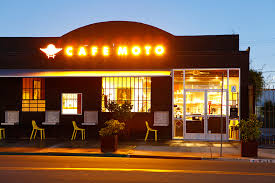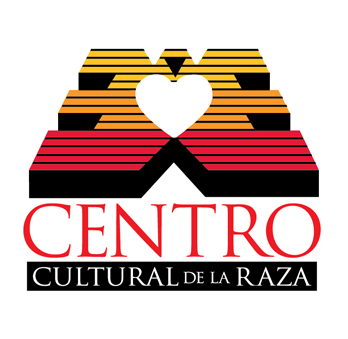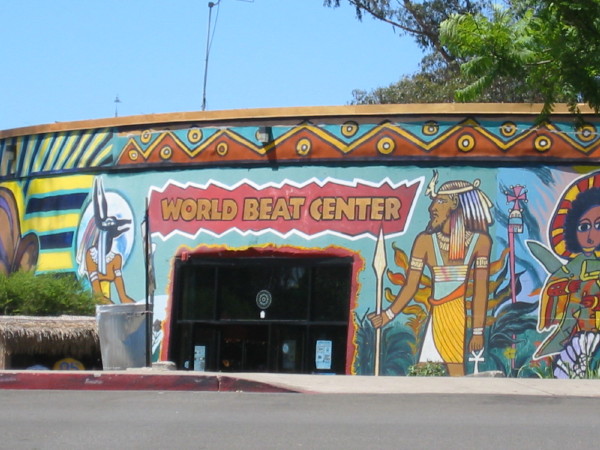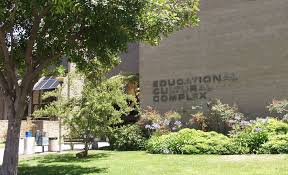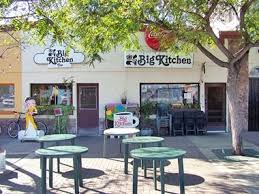In 2006, when Hilda Chan was in college, she began volunteering at San Diego’s Supportive Parents Information Network (SPIN), a grass roots, welfare rights advocacy organization made up of San Diego families on welfare. Since 1997, San Diego had been operating an “anti-fraud” program called Project 100% (P100). Under that policy, all families applying for CalWORKs had to submit to warrantless, suspicionless, unannounced home searches by District Attorney Investigators as a pre-condition to receiving aid.
SPIN’s founder and director, Joni Halpern, had been instrumental in the early stages of fighting against Project 100% (P100), advocating for needy families harmed by the searches, and collecting stories. By the time Hilda arrived at SPIN, a lawsuit challenging these suspicionless home searches as unconstitutional was well underway. The lawsuit, Sanchez v. San Diego County was brought by the ACLU and Western Center for Law and Poverty.
Both friends and colleagues at SPIN had a very personal stake in seeing home searches defeated through the Sanchez lawsuit. Most of the plaintiffs in the Sanchez case were SPIN mothers who had been subjected to these terrifying and humiliating searches. Every single family supported by SPIN had experienced invasive home searches.
The Families of P100
One woman was accused of failing to report income after an investigator insisted some boots found in her home were “work boots.” Single parents busy with work, school and parental obligations have missed the two surprise visits, resulting in a denial of their request for benefits. A teenager witnessing the search thought her mother was going to be taken away, so she began formulating a plan to become the caretaker of her younger siblings. Families have been erroneously denied aid when investigators pointed to an extra toothbrush or boxer shorts as evidence of fraud. One newly homeless family who had just fled from domestic violence was denied because they could not prove they temporarily resided at a relative’s home; they had taken only a few belongings with them in their haste. One woman said the investigator was the nicest person and was clearly embarrassed about having to search the home, apologizing, “I’m sorry, but it’s my job.” Many families have reported home searches and interrogations that have lasted an entire hour. Investigators have searched dirty hampers, medicine cabinets, closets, under beds and behind furniture. Many homeless families fear that their children will be taken away if the investigator witnessed their deplorable living conditions.
Unfortunately, the Sanchez challenge failed in the trial court and at the Ninth Circuit Court of Appeals (Sanchez decision). But for SPIN, the fight wasn’t over. SPIN started planning for alternate ways to bring an end to this policy, outside of the courts.
After law school, Hilda returned to work at SPIN as an attorney. When the time came to decide on a post-graduation project at SPIN, Hilda wanted to move the fight to end P100 home searches to the public policy arena, building support for a more humane, fiscally sound policy. Fortunately, Open Society Foundations decided to fund Hilda’s project through the Soros Justice Fellowship Program.
The Project
The Fellowship project challenges the home searches by exposing them as not cost effective and bad public policy. Hilda’s research shows that P100 does not detect or deter attempted fraud as well as targeted fraud deterrence efforts and is not cost-effective. At least $28.5 million scarce welfare dollars have been diverted away from needy families to fund the District Attorney’s Office’s costs for this program. The searches are extremely invasive, humiliating and traumatizing for children and parents, and cause substantial delays in the county’s ability to provide critical assistance to families in crisis.
San Diego County must return to the smarter, universally-accepted policy of using targeted home searches of families applying for aid. No other locality in the nation employs a blanket search policy that commits resources to the investigation of families with no discrepancies in their applications. Los Angeles County, which had a similar blanket policy, returned to a targeted home search policy in 2009 because they uncovered fraud in less than one-half-percent of homes searched. They knew it wasn’t cost-effective, so they stopped it. San Diego County needs to do the same.
PILP’s Role in the Project
At the outset of the fellowship, SPIN was forced to close its doors after operating 15 years as an incredibly effective, all-volunteer community organization. It’s been a huge loss to the San Diego community.
PILP agreed to support the fight against these P100 home searches and welcomed Hilda Chan as a fellow. With its years of experience advocating for better welfare policies across California, PILP’s guidance and support has been invaluable to the project. Hilda says, “I’ve really valued the mentorship PILP’s provided on a personal level, and it’s also been reinvigorating to be a part of a team and community at PILP.”
The Future of P100
This policy has persisted since 1997, and San Diego is still the only county in the nation that imposes blanket, rather than targeted, investigations.
Dismantling P100, which has been entrenched for 16 years in a very conservative county, was never going to be an easy fight. It will take continued efforts, even after the end of this fellowship. But the groundwork for those future efforts could not have been accomplished without the work of tireless advocates at SPIN, ACLU, WCLP, and now, PILP.
San Diego News
Martin Luther King, Jr. at San Diego State - 50th Anniversary Commemoration Set for April 30
In the spring of 1964, music archivist and vintage record store owner Lou Curtiss was a 24-year-old political science major at what was then San Diego State College. When he learned civil rights leader Dr. Martin Luther King, Jr. was scheduled to speak at the Open Air Theater on Friday, May 29, he knew he had to be there.
Nine months before, King had delivered his famous “I Have a Dream” speech at the March on Washington. He was Time Magazine’s 1963 Person of the Year.
Curtiss had attended the March on Washington and heard King speak. He had also met King that year near Atlanta during a peace walk.
Fifty years later he can’t recall much of what King had to say at San Diego State. What he does remember is what happened when he approached the reverend after the speech.
“I guess he had just a phenomenal memory for names and faces,” says Curtiss. “Dr. King walked up and said, 'Hi, Lou! How are you?' and reached out.
"I was really proud of the fact that he remembered me. I felt real good about it and it's something I've never forgotten."
PLAQUE DEDICATION
Although many details of that day have been lost in the past half century, SDSU will commemorate King’s visit to campus with an April 30 plaque dedication at the university’s Cal Coast Credit Union Open Air Theatre upper courtyard. SDSU President Elliot Hirshman and professor emeritus of Africana studies, California Assemblywoman Shirley Weber will be among the featured speakers at the 3:30 p.m. public event preceding the university’s annual Diversity Awards celebration at 4:30 in Montezuma Hall.
SDSU Anthropology Department Chair Seth Mallios, Ph.D., is part of a committee researching the speech and planning the commemoration. He has heard from almost 50 alumni and others who say they remember attending that event or the speech King gave later that same day at Cal Western University - now Point Loma University.
“We don’t have a copy of the speech he gave at State,” says Mallios who has lifted quotes from newspaper articles and consulted with researchers who have studied the civil rights leader’s oratory. According to the professor, King came to San Diego State to argue against Proposition 14, a ballot measure at the time.
“Prop. 14 was going to nullify the Rumford Fair Housing Act,” Mallios says. “It was going to say that landlords could rent to whoever they wanted, that they could discriminate.”
PROTESTS AND FIRE BOMBING
King was unsuccessful in his efforts. Prop. 14 was passed by California voters, but was later struck down by the Supreme Court.
“One of the reasons King’s visit here was so important is that it shines a light on the historical reality that San Diego and California were not that progressive,” Mallios asserts. “We in the West like to think that California is very progressive, especially on the issue with civil rights, but what this is showing is that that wasn't the case.”
In fact, both of King’s San Diego speeches were picketed by protestors. That same day, his home in Florida was fire bombed.
“They're handing out pamphlets both here and at Cal Western saying he was a communist,” says Mallios. “He's in the midst of this huge civil rights struggle in the South and then, oh yeah, his house gets fire bombed in Florida. It was a time when this man was enduring fights on so many different fronts and he hadn’t even fully taken on economic discrimination and the Vietnam War yet.”
A TIMELY VISIT
Two days before King’s visit and following an intense campaign, the Congress of Racial Equality (CORE) had been given student-group status on campus. A junior majoring in geography in the spring of 1964, Ralph Clem (’65), now a 70-year-old retired Air Force general and university professor emeritus, had helped the petition effort to bring CORE to San Diego State.
“His visit was timely," Clem says. "I remember there being a lot of excitement about it. I went with two or three friends and was frankly kind of surprised that it was overflowing in terms of the crowd, which of course was a good thing.
"He talked a lot about the institutional basis of the civil rights movement and about the need for legal reforms, the need for members of minority groups and particularly African-Americans to have access to the full range of rights that any citizen should expect in this country and how that might be pursued.
“I don't remember it as rousing. I remember it as very impressive. He didn't bring forth the kind of full power of his Southern Baptist preacher sermonizing. He did on occasion rise, but it was more of, I don't want to say an ‘academic’ talk because it wasn't an academic talk, but it was more of a lecture than it was a speech."
CHARISMA AND BELIEF
One of those attending the speech with Clem was Steve Lamprides (’74,’82), an environmental consultant who remembers where he and his friends were sitting in the audience listening to King. More involved with his studies than with the politics of the time, he says he attended the speech simply to broaden his college experience.
“It was a goal of mine in those days - still is - to know as much as I possibly can," Lamprides recalls. “I just thought he was an interesting man with an interesting philosophy."
Later, of course, he would come to more fully understand and appreciate Dr. King’s role in American history.
At the time, Ambrose Brodus, Jr., on the other hand, fully grasped what King was trying to achieve. He had met the young reverend at San Diego’s Calvary Baptist Church in February of 1960, where King had shaken his and autographed a program.
“I saw enough of him to see the charisma,” Brodus says. “The man believed. He practiced what he preached and we could see that he was determined.”
At 89, the former local CORE leader and San Diego County Urban League administrator doesn’t remember much of King’s San Diego State appearance. But he knows King’s words inspired at least some members of the audience to action.
“I think he was able to move some students and not only some students but some faculty,” recalls Brodus, a Louisiana native who had served jail time for protesting the exclusionary policies of some San Diego businesses regarding people of color. “I saw people become involved with CORE, the Urban League and some other activities beyond the Urban League from State."
THINGS THAT NEED DOING
In fact, Brodus says, King’s visit to San Diego State helped strengthen his own resolve to continue the struggle for equal rights. “After seeing King and hearing him talk you can't go away and refuse to do something or refuse to be involved,” he notes.
While many Southern Californians think of the civil rights movement as something that took place largely in other parts of the country, those more directly involved in activism, like Brodus and Curtiss, remember it differently. They view Dr. King’s San Diego visit as a boost to their efforts and are pleased that SDSU will commemorate the 50th anniversary of his speech on campus.
"At that stage of the game, I think it was important (for Dr. King) to start getting out into places like San Diego, you know, places that weren't really thought of as places that had a big race problem, but probably had more of a race problem than they knew they had,” observes Curtiss. “Dr. King, by coming to San Diego, stirred up a lot of interest in the local community into sitting down and working out their differences and getting some things done and I think we're all the better for it.
"It was an interesting time to be around. A lot of things got done in the ‘60s that needed doing. There are still some things that need to be done, but a lot of things got done and Dr. King, of course, was a big part of that."
SOURCE: http://www.sdsualumni.org/s/997/index.aspx?sid=997&gid=1&pgid=3375
More Articles ...
Subcategories
San Diego
Barrio Logan, Black Mountain Ranch, Carmel Mountain Ranch, Carmel Valley, City Heights, Clairemont Mesa, College Area, Del Mar Mesa, Downtown, Center City, East Elliott, Eastern Area, Encanto, Fairbanks Ranch Country Club, Greater Golden Hill, Kearney Mesa, Kensington-Talmadge, La Jolla, Linda Vista, Midway Pacific Hwy Corridor, Miramar Ranch North, Mira Mesa, Mission Beach, Mission Valley, Navajo, Normal Heights, North City Future Urbanization Area (NCFUA), North Park, Ocean Beach, Old Town San Diego, Otay Mesa, Otay Mesa - Nestor, Pacific Beach, Pacific Highlands Ranch, Peninsula, Rancho Bernardo, Rancho Encantada, Rancho Penasquitos, Sabre Springs, San Pasqual Valley, San Ysidro, Scripps Ranch, Serra Mesa, Skyline Paradise Hills, Southeastern San Diego, Tierrasanta, Tijuana River Valley, Torrey Highlands, Torrey Hills, Torrey Pines, University, Uptown, Via de la Valle.
Print copies here!

Central
Educational Cultural Complex
Logan Heights
Malcolm X
North Park

